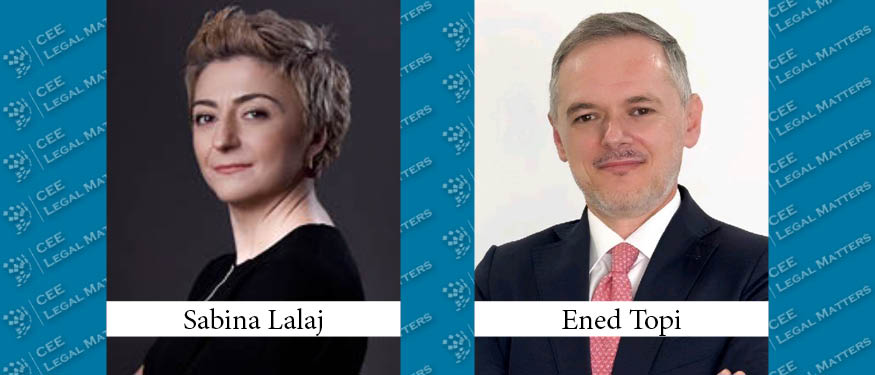As Brussels adopts one of the most ambitious environmental regulations in recent years, Albania once again finds itself at a familiar crossroads. The country faces pressure to align but still lacks the institutional capacity and market readiness to act meaningfully.
This time, the pressure comes from the new Regulation (EU) 2025/40 on packaging and packaging waste. It is a comprehensive legislative act that sets strict requirements on how packaging must be designed, labeled, collected, reused and recycled. The regulation allows no room for national interpretation or gradual enforcement. It imposes clear and immediate obligations.
For Albania, which aims to join the European Union by 2030, the message is equally direct. To be part of the single market, one must be part of the circular economy. And it all begins with Extended Producer Responsibility (EPR).
EPR is not an unfamiliar concept in Albania. The term has been mentioned in draft laws, national strategies, donor reports, and public roundtables. In addition to being partially addressed in the legislation on integrated waste management, efforts have been made over the past two years to regulate EPR as a standalone system through two draft laws that were prepared and circulated, aiming to establish a functional framework. However, none of these initiatives have turned into reality. They failed due to a lack of broad consultation, the absence of a sustainable financial model, fragmentation and inconsistency in the legal framework, and the lack of clear and credible implementation structures.
Today, most producers do not contribute financially to the management of the waste generated by their packaging. There is no national packaging register. No eco-modulated fees based on environmental impact. No effective mechanisms to monitor performance. Municipalities continue to bear the financial burden that should be covered by the industry, while informal collectors fill the institutional gap in practice.
Meanwhile, Albania is also in the process of revising its main waste management law, following the failure of the much-criticized incinerator model. This reform represents an opportunity to move away from fragmented and high-risk interventions toward building transparent, circular systems aligned with the EU acquis, including the Circular Economy mechanism, as well as to ensure compliance with the requirements of Regulation (EU) 2025/40.
The new regulation (EU) 2025/40 introduces binding targets, direct bans and clear responsibilities. By 2030, all packaging must be recyclable. By 2035, it must be recyclable at scale. Producers will be responsible for financing the collection, treatment and recycling of packaging waste, and for creating deposit return systems and reuse schemes.
The regulation also requires harmonized labeling and digital tracking to help consumers and authorities and sets minimum recycled content for plastic packaging. Unnecessary or oversized packaging, especially in e-commerce, will be fully banned. These are not policy aspirations. For every EU member state, they are immediate and mandatory obligations.
All of the above constitute real obstacles for Albania. Producers, exporters and importers will have to demonstrate packaging compliance to access the EU market. A failure to align could result in rejected products, loss of market access or exclusion from circular economy funding.
But alignment also brings opportunity. Green investments, new jobs and greater competitiveness, especially for recyclers and early movers. It strengthens the country’s credibility in the EU accession process.
To avoid repeating past mistakes, Albania must take a new and structured approach. Isolated legal reforms, financially unsupported policies and imported models without local adaptation can no longer be the norm. The country needs coordinated policymaking, institutional clarity and early engagement of all stakeholders in an open and inclusive process.
The government must provide long term legal certainty and planning. The industry must take responsibility by organizing and contributing. Municipalities, producers, recyclers and civil society must be involved from the earliest stages, not just after a law is adopted.
This is not merely a technical reform about waste management. It is a structural shift in how the country builds its environmental and economic future. EPR is no longer a policy choice, but it is a condition for EU membership and an opportunity to lead the transition toward a cleaner, more sustainable and better integrated Albania.
Rather than wait for the perfect law, producers, retailers and recyclers should begin organizing into collective structures, raising awareness and educating the market about the duties and benefits of EPR. This process must include citizens and consumers, who should understand their role in separating and returning packaging, using deposit systems and making daily choices that affect the environment.
The government, for its part, must act as an enabler, not just a regulator. It should encourage early engagement through fiscal incentives, official recognition of voluntary efforts and permanent platforms for public private cooperation and meaningful consultation.
No actor who is ready to act should be held back by legal gaps. On the contrary, early movers should be supported as part of the solution.
If all sides work together with coordinated steps, Albania can build a reliable and functional system that not only meets EU standards but also reflects a real commitment to institutional responsibility and sustainable development. This is the moment to show that the country is ready not just for membership, but to take the green step toward Europe.
By Sabina Lalaj and Ened Topi, Partners, Lalaj & Partners
